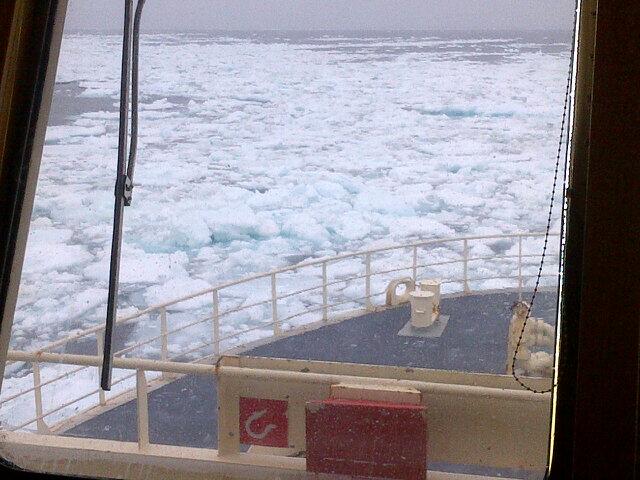Here's an exchange of tweets between Andrew Titus and David Anderson....
and an enlarged version of the photo...
with this shot from the wheelhouse of the Mersey Phoenix showing some light icing as you might expect when its -5° at night!....
showing just how big the difference is in the weather in those far western latitides despite the negligible difference in longitude between Cornwall and the coast of Newfoundland!















